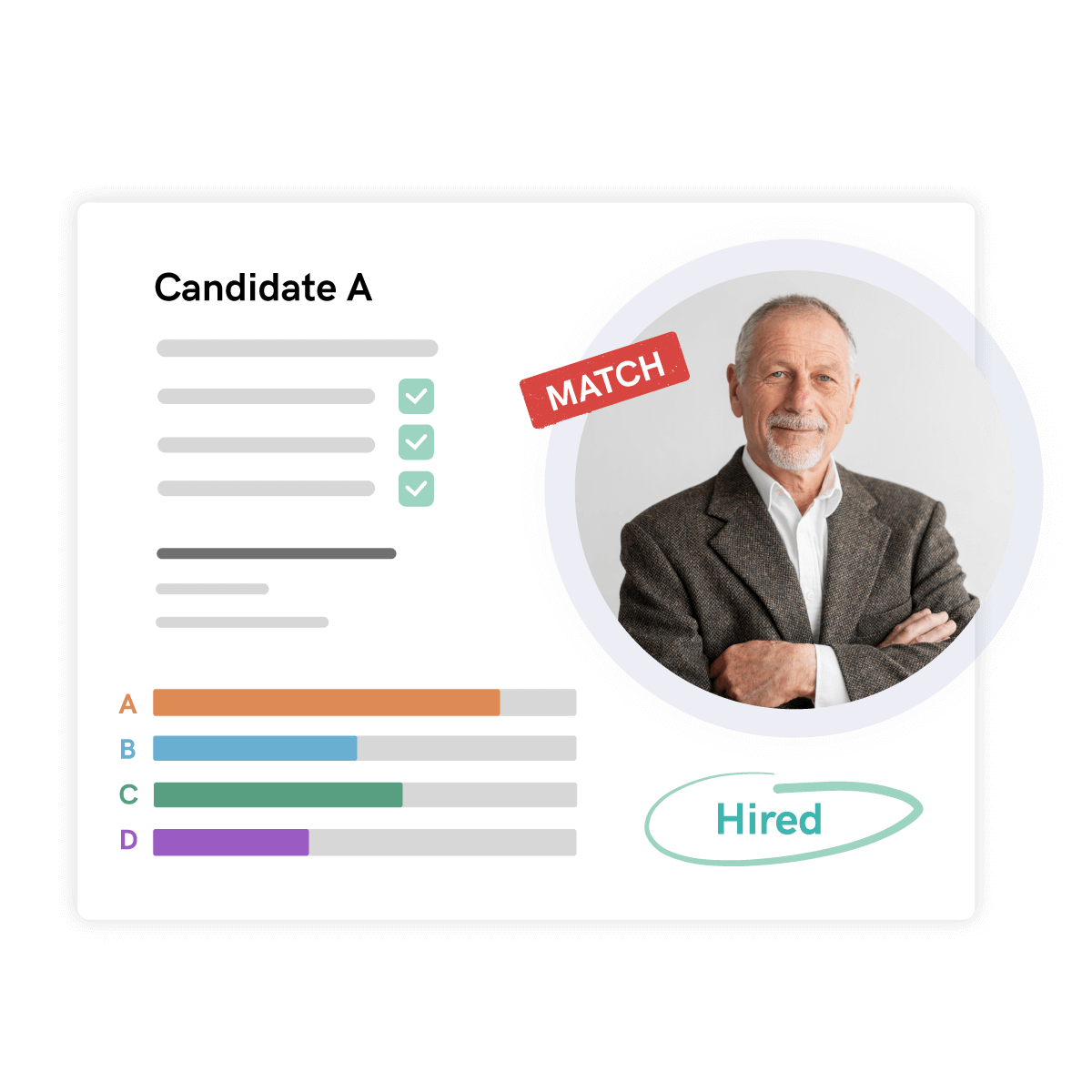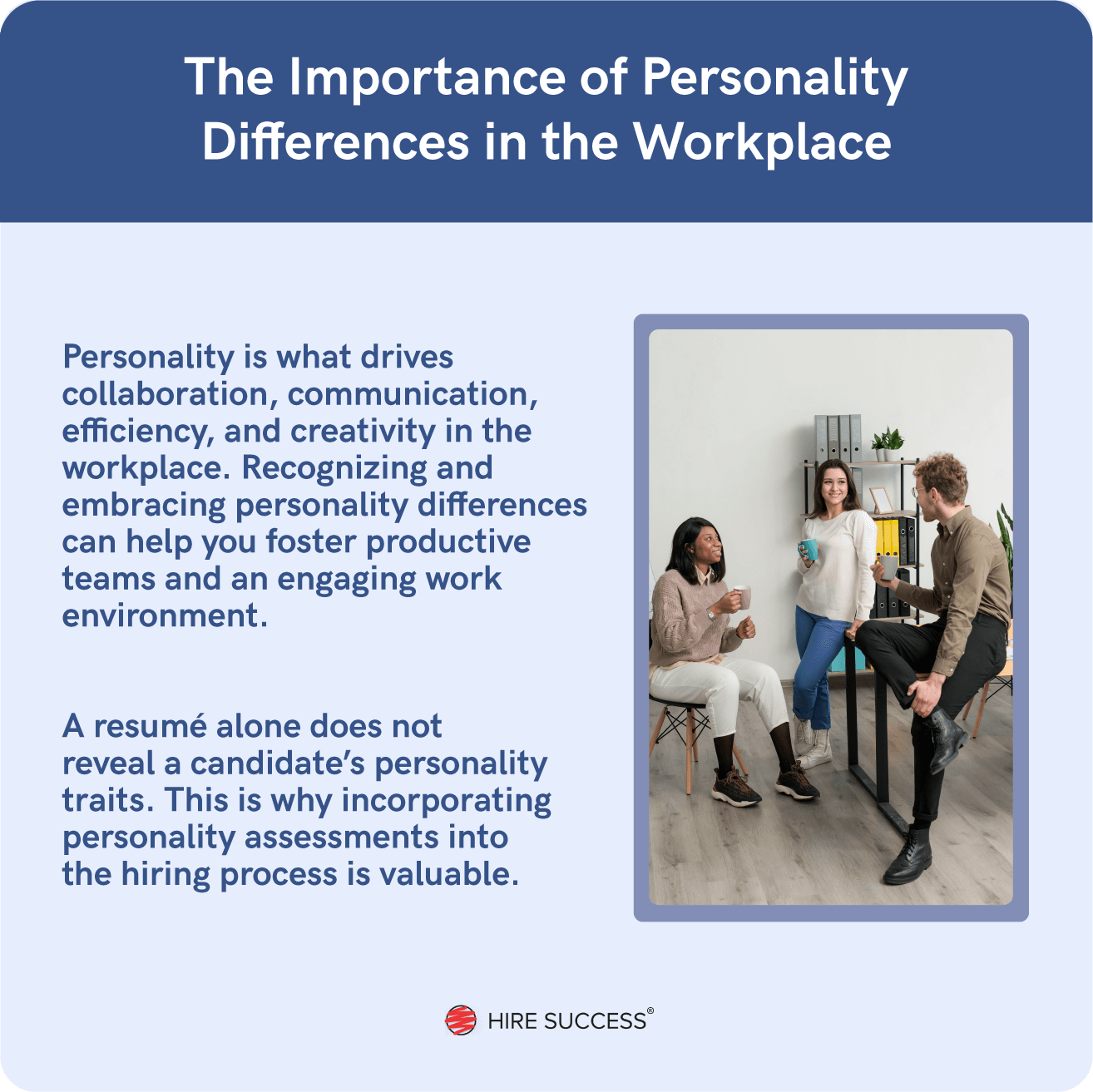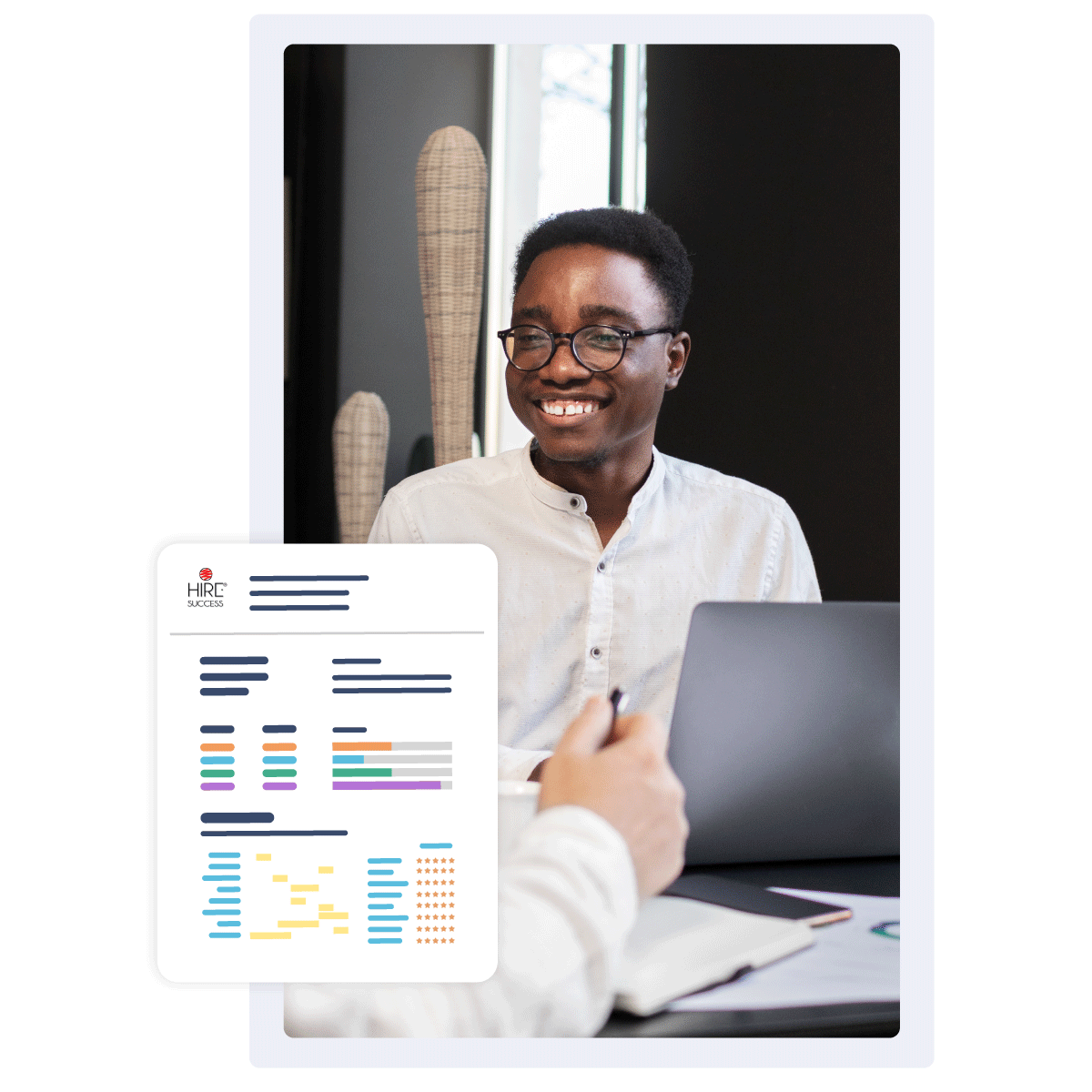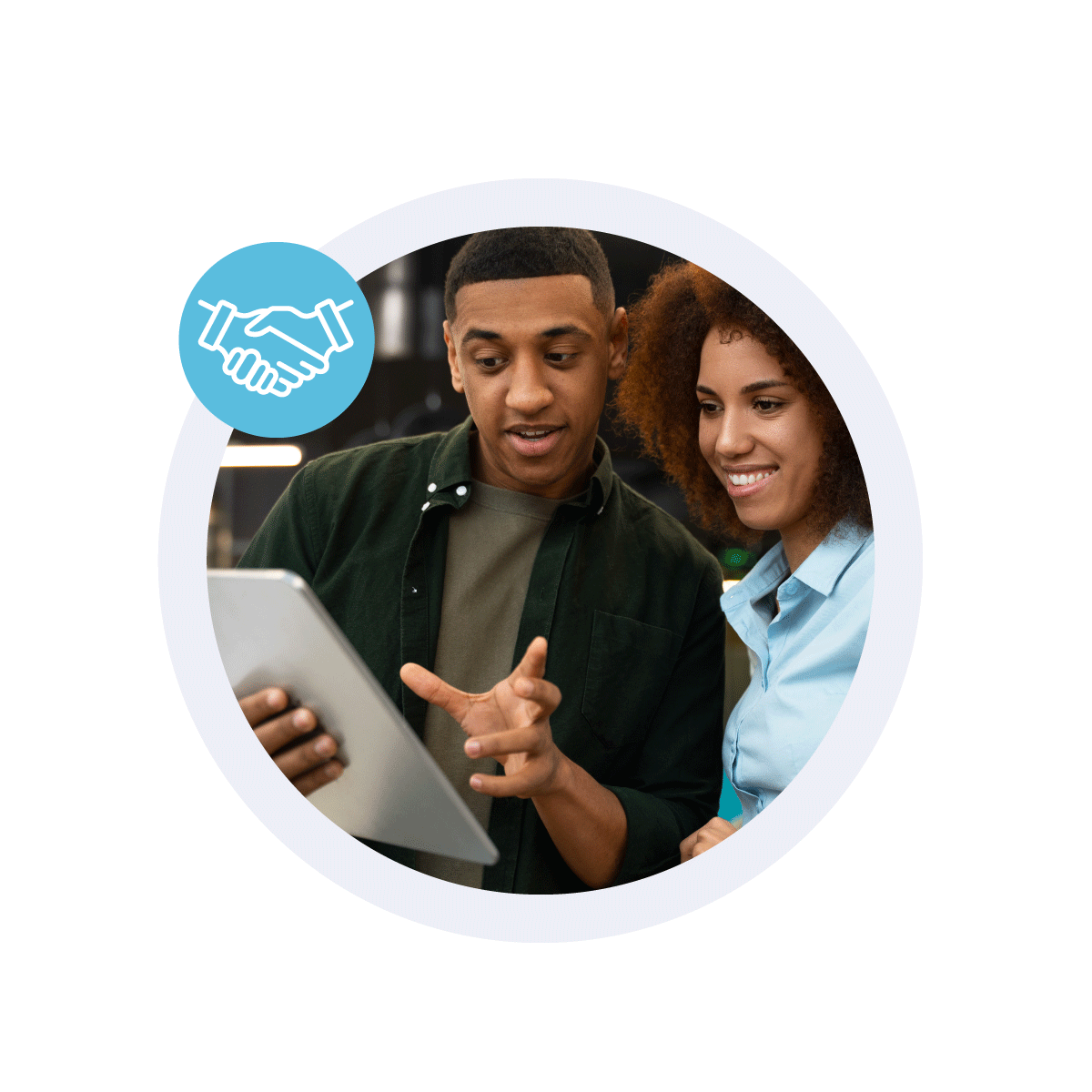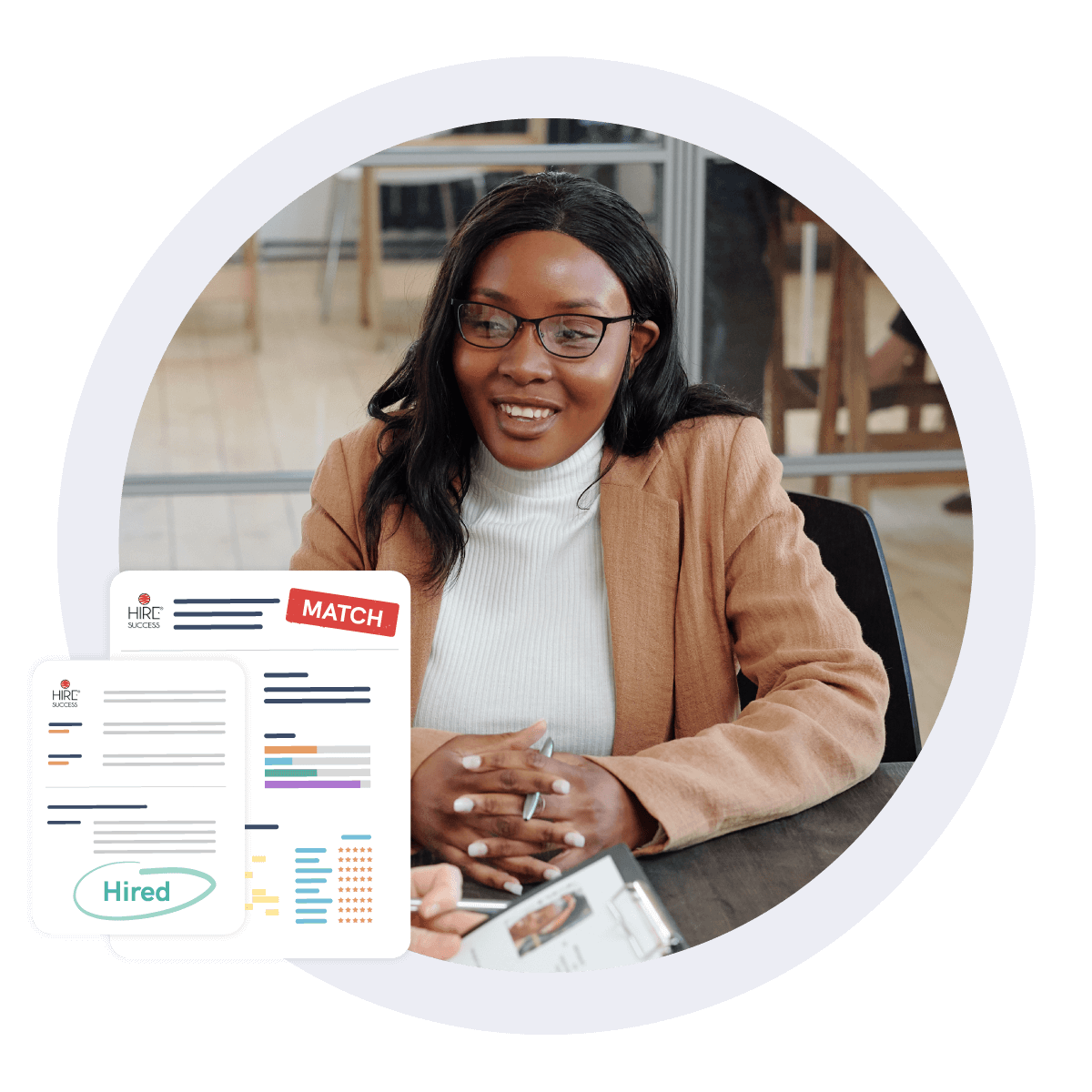Key reasons why personality attributes matter at work
Here are some of the benefits of different personalities in the workplace and thinking ahead when it comes to personality fit.
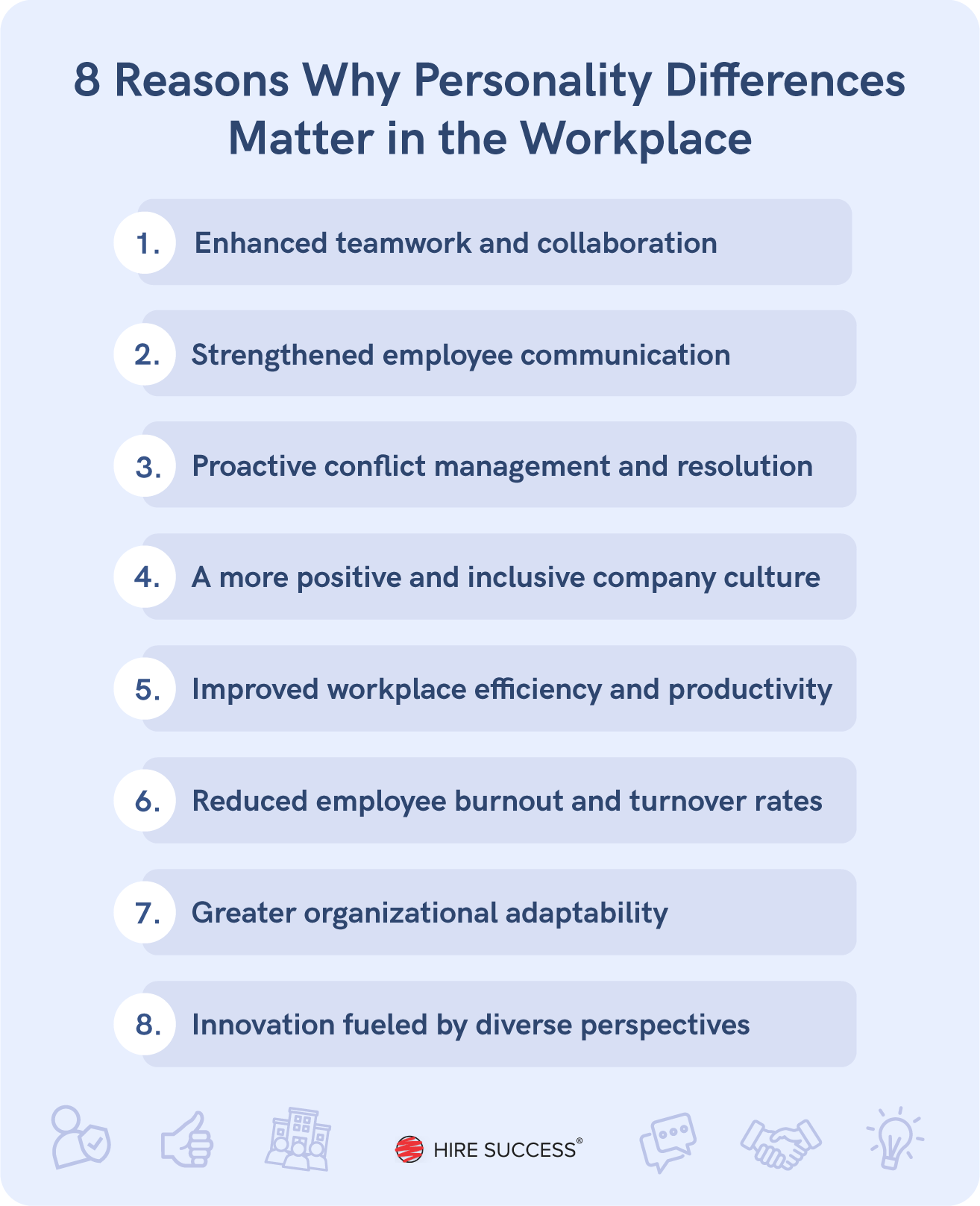
1. Improved teamwork and collaboration
High-functioning teams include people with a mix of personalities, each bringing their own strengths, ways of seeing and thinking, and style of working. When you get the balance right and have the right teamwork skills, your organization is more effective.
Hiring for diverse personalities that fit and harmonize creates teams where people “get” each other naturally. You cut out the wrong assumptions, doubts, and distrust that can arise when team members don’t understand each other or respect each other, and fail to mesh well.
2. More effective employee communication
People with different personalities have different communication styles. Having a variety of types of people ensures messages are heard, understood, and taken in by more people. Type As are conversation drivers, Type Bs encourage everyone to contribute, Type Cs work for details and clarity, and Type Ds want emotional sensitivity in what is said; each contributes to effective communication.
3. Conflict prevention and resolution
When you have teams with a balance of personality types, you can reduce clashes and missed opportunities due to conflict. You need to push for results — and that is what a Type A will do. But that may make people feel steamrolled. A Type D on the team can validate feelings and mediate before tensions escalate.
While seeking good personality fits, take care to avoid hiring toxic people. It takes just one person to create drama, drop the ball, spread doubts, and undermine progress to spark conflicts. Screening personality types can also screen out personality disorders that lead to behavior issues that can upset your team and potentially put people in danger.
4. Improved company culture
If your organization has a strong culture that works well for achieving your aims, you will want to test personalities so that you bring in people who will fit with, enjoy, and add to the culture. If you are looking to make some changes, testing for culture fit during hiring can give you insight into people who will enhance your workplace.
Perhaps you want to spark more innovation and risk-taking. You might want to make the workplace more relaxed. Maybe you need to be more responsive to customers. Culture testing can help you build the right combination.
5. Increased workplace productivity
People are happier in their work and are more accomplished when they are well-suited for their roles. Temperament, attitudes, and ways of doing things vary from person to person. Productivity is the result when you have a goal-oriented Type A that stays focused on meeting deadlines and achieving objectives. A Type B can contribute innovative ideas and add a sense of fun. Working with a detailed, how-it-works Type C person ensures that the work gets done well, to standards, and on time. Type D keeps up morale, supports teamwork, and makes sure everyone is happy and willingly aligned.
To ensure this kind of productive mix, test for personalities. You might consider, for example, testing sales representatives to find people who are self-starters, stay motivated, like meeting people, and are skilled at establishing rapport. An introvert might struggle in this role. Figure out the types you need and then test to uncover the right mix among your candidates.
6. Reduced employee burnout and turnover
When you have people in the wrong roles, they can quickly become frustrated, overwhelmed, unvalued, overworked, and eventually disengaged and burnt out.
A bad fit with culture is consistently cited as a top reason why people leave a job. If they don’t have the right personality for the role or don’t connect with the rest of the team, it doesn’t matter how much money they earn. They are likely to leave, and potentially bad-mouth your organization.
Turnover is expensive and disruptive. Doing all you can to reduce employee turnover is important, but preventing it by making careful hiring decisions that consider personality is a better approach.
7. Increased adaptability
A mix of personalities brings different perspectives for a full understanding of problems and opportunities. Different styles contribute to how teams address issues. A Type A might see a solution and make a snap decision, while a Type C might say “wait a minute” and analyze different angles and responses. Type B may take it from there and get creative in generating alternatives. A Type D helps get everyone aligned around the way forward.
The result of having these different personalities on the team is a highly adaptive and creative organization that focuses on achievement and problem solving. When you test for adaptability skills with job candidates, you can pick the right personality for your team and current needs.
8. Innovation through diverse perspectives
Seeing problems in a different light, having experiences in other areas that can be adapted in new ways, and bringing new insights to your teams all contribute to innovation.
When people see things from different perspectives, they naturally generate a wider array of ideas, sparking the creativity of others that groupthink cannot achieve. A balanced team that supports an inclusive culture encourages bolder ideas and a willingness to experiment. Teams can brainstorm, test, learn, and iterate faster. Increasing diversity in the workplace pays off with inspirations that strengthen your organization.
